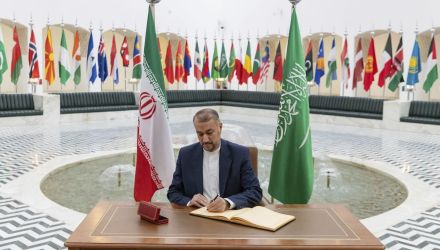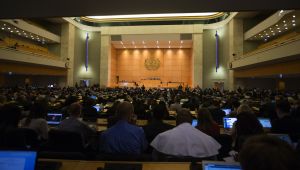U.S. officials are cautiously optimistic that they are close to a deal with Iran to freeze its nuclear program as a first step toward a comprehensive agreement that would allow a limited Iranian civilian nuclear program, including some enrichment of uranium for civilian uses.
The aim of this dual strategy was to open the door to better relations — and also push Iran through that door.
The danger for the U.S. is that in making a breakthrough its 35-year adversarial relationship with Iran, it will trigger a new crisis with its longtime Middle East allies, Israel and Saudi Arabia, which regard Iran as an implacable enemy and oppose the nuclear deal. Israeli Prime Minister Benjamin Netanyahu has denounced the outlines of the deal, setting the stage for what could be a bitter U.S.-Israel confrontation.
The negotiations could be concluded at a meeting Thursday in Geneva between Iran and a coalition of nations known as the “P5 + 1.” That group includes the five permanent members of the U.N. Security Council—the U.S., Russia, China, Britain and France—plus Germany. If the deal is reached, the negotiators would be joined, perhaps as early as Friday, by Secretary of State John Kerry and other foreign ministers. A senior U.S. official in Geneva cautioned reporters, though, that it would be “very hard” to reach a deal before the end of the week.
In Washington, however, officials indicated the basic outlines of a possible deal are close. The deal would give Iran access to some funds that have been frozen by sanctions. The precise amount is unclear, but U.S. officials say it would be less than $10 billion. It’s also possible that the U.N. might decide to lift some of the sanctions it has imposed, if Iran can resolve the issues cited by the Security Council in its resolutions condemning Iran.
Details of the package remain tightly held, but one U.S. official said it would probably include a formula that has been stated often publicly by Obama, that the U.S. “respects Iran’s right to access a civilian nuclear program.” The specific nature of that civilian program, and the level of uranium enrichment that could be conducted in the future, would be negotiated over the next six months as part of a final, comprehensive deal.
Ignatius, David. “U.S. Optimistic About A Nuclear Deal With Iran.” The Washington Post, November 20, 2013




